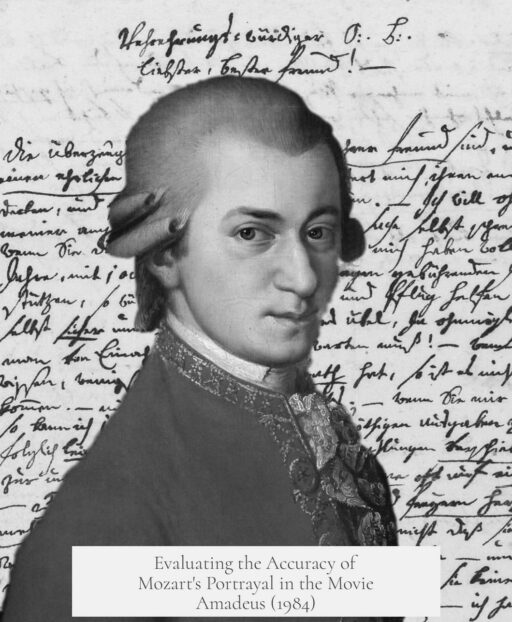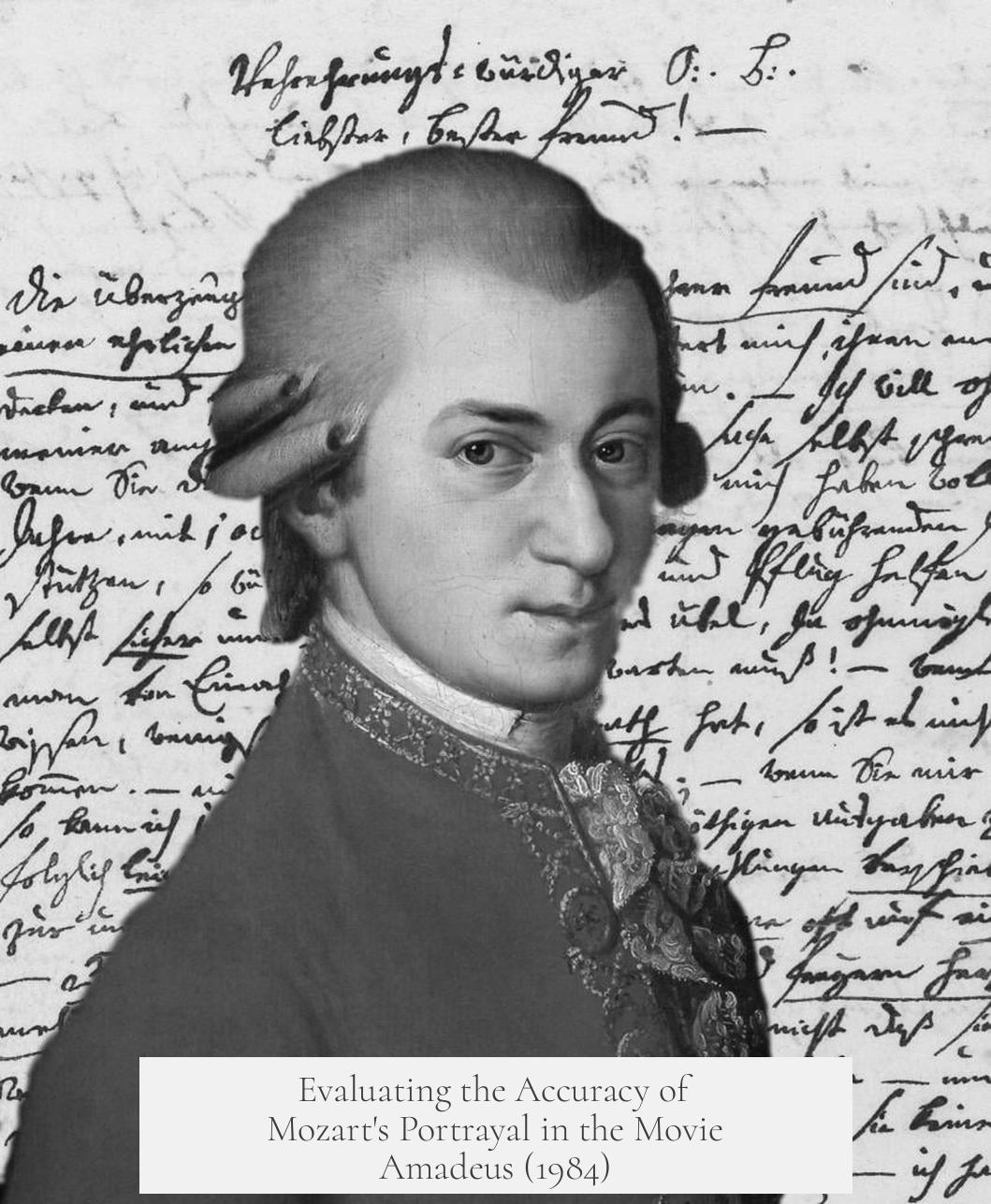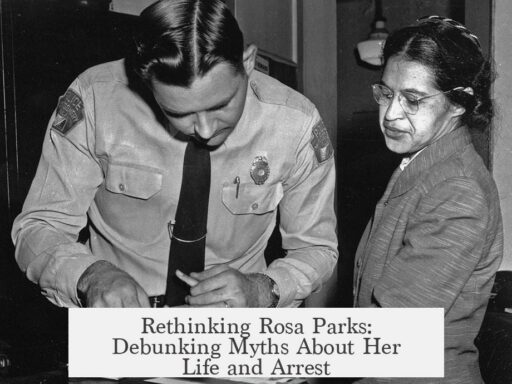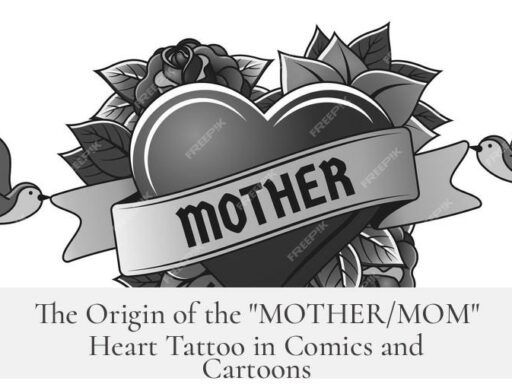The portrayal of Wolfgang Amadeus Mozart in the 1984 film Amadeus is a blend of fact and fiction, leaning heavily into stylization and exaggeration to tell a compelling story rather than strictly adhering to historical accuracy. The movie emphasizes Mozart’s genius while dramatizing his personality and relationships, particularly with Antonio Salieri, to create narrative tension and explore themes of envy and divine talent.
Film portrayals often prioritize drama over exact facts. Amadeus exaggerates Mozart’s behavior, his background, and his interactions to highlight the contrast between genius and mediocrity. The story paints Mozart as a childish, almost reckless musical prodigy, with Salieri as his envious adversary. While this dynamic makes for powerful cinema, it does not fully reflect historical realities.
Regarding Mozart and Salieri, the movie’s central rivalry is exaggerated. Historically, they shared professional respect more than animosity. They worked contemporaneously in Vienna’s music scene but evidence suggests they did not harbor the bitterness or hatred seen in the film. Notably, Salieri even taught music to Mozart’s son. The rumor that Salieri poisoned Mozart is unfounded and is not supported by historical records.
Mozart’s personality in Amadeus is shown as wild, immature, and at times bordering on madness. While the real Mozart did have a juvenile sense of humor, often marked by crude jokes and playful language—as seen in his letters to his cousin Maria Anna—the film heightens this trait to an extreme for theatrical impact. His real humor included playful and sometimes scatological jokes but did not typically translate to erratic or mad behavior. He was known as a witty and fun individual, but not the unrestrained eccentric the movie portrays.
The depiction of Mozart’s musical genius holds more truth. He was indeed highly skilled, capable of composing complex pieces quickly and often without many corrections. For example, he composed his 36th Symphony in just four days during a stopover in Linz. His ability to hear and compose music internally was remarkable. However, he was not a nonstop musical factory. Like many artists, he faced creative struggles and hardships, as evidenced by his own letters describing difficulties composing an opera in French. This complexity adds depth to his character that the film touches on but simplifies.
Mozart’s relationship with his father, Leopold Mozart, is only partially explored in the film and somewhat simplified. Leopold was an accomplished musician and took a commanding role in his son’s upbringing. He began teaching Mozart at a very young age and pushed him rigorously. Their relationship had tensions, especially as Mozart reached adulthood and asserted his independence. The film overlooks much of this dynamic and instead focuses more on Mozart’s adult life in Vienna.
The movie frames Mozart as a “perpetual child,” an archetype commonly used to explain his early fame and the way he seemingly never fully matured emotionally. This concept compares Mozart to figures like Michael Jackson, both of whom had childhoods dominated by intense public performance, limiting their opportunity to develop in more typical ways. Amadeus uses this idea to deepen the tragedy of Mozart’s life but simplifies the reasons behind his complex personality by attributing it largely to arrested development, rather than a full spectrum of life experiences.
Overall, Amadeus captures the essence of Mozart’s extraordinary talent and some of his real-life quirks but sacrifices historical nuance for dramatic storytelling. The narrative choices create a vivid, memorable character that stands for the clash of genius and envy rather than an exact biographical portrait.
| Aspect | In the Film | Historical Reality |
|---|---|---|
| Personality | Wild, childish, sometimes mad | Witty with juvenile humor, socially complex but not mad |
| Relationship with Salieri | Bitter rivalry, Salieri envies and poisons Mozart | Professional respect, friendly enough for Salieri to teach Mozart’s son; no poison |
| Musical Genius | Constant musical factory, composing with little effort | Genius talent capable of rapid composition, but faced creative challenges |
| Relationship with Father | Minimal focus, mostly overlooked | Strong but tense relationship with controlling father and mentor |
| Life Story | More dramatized and simplified for storytelling | Complex life, with ups and downs marked by personal and professional challenges |
- The film uses exaggeration and stylization to highlight Mozart’s genius and struggles.
- The rivalry between Mozart and Salieri is mostly fictional and exaggerated.
- Mozart’s juvenile humor is based on fact but amplified for dramatic effect.
- His musical ability is accurately shown as remarkable but not effortless.
- The movie simplifies Mozart’s relationship with his father and personal life complexities.
How Accurate Is the Portrayal of Wolfgang Amadeus Mozart in the Movie Amadeus (1984)?
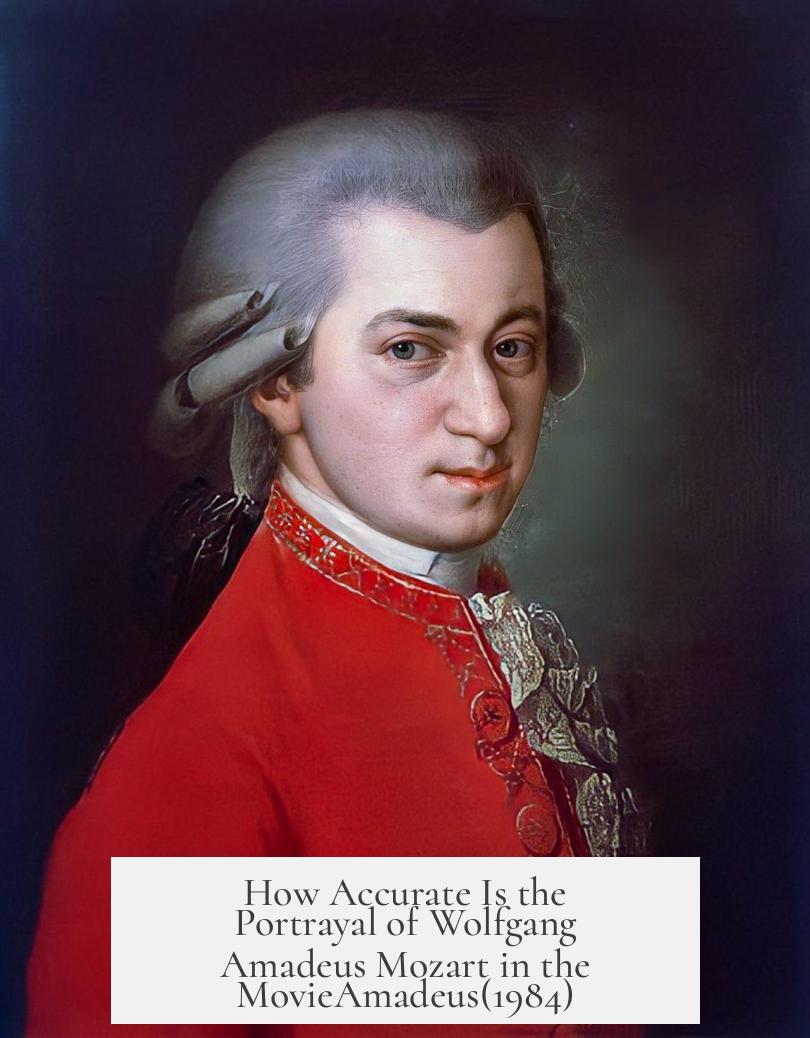
Is the depiction of Wolfgang Amadeus Mozart in Amadeus (1984) factual? The simple answer: not exactly, but it captures some essential truths about the man and the myth. The film is a flamboyant blend of biography, legend, and drama—a cocktail that serves more entertainment than documentary precision.
But what exactly does Amadeus get right? And where does it veer off into stylish exaggeration? Let’s unpack the layers behind the portrayal of Mozart in this iconic movie.
Stylized Storytelling: Drama Over Documentary
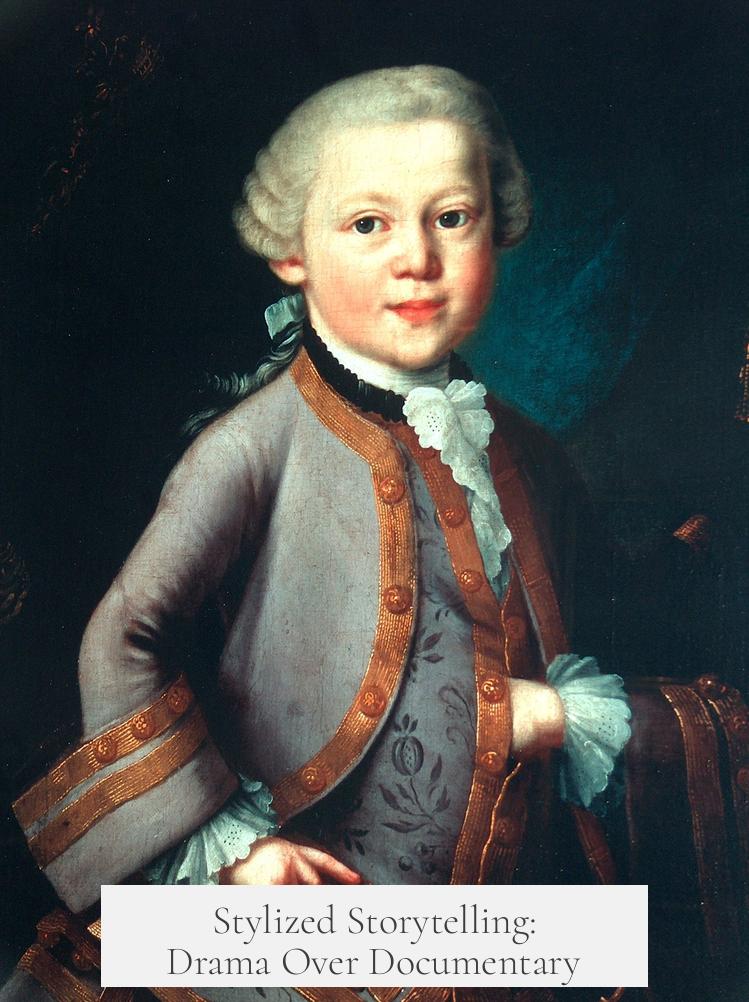
First, it’s crucial to understand that film adaptations almost never play it straight. Amadeus leans heavily on stylization to deliver a gripping narrative. The movie’s story arc charts Mozart’s rise from nothing to stardom—but in reality, Mozart was never really an underdog in the typical sense. His childhood was steeped in rigorous musical training and privileged patronage.
In fact, the film’s antagonist, Antonio Salieri, is portrayed as consumed with jealousy, plotting Mozart’s downfall. But the truth is more muted: the two composers had a somewhat cordial, even cooperative, relationship. Salieri didn’t poison Mozart (contrary to the film’s dark twist). Instead, he later tutored Mozart’s son. The plot choice between rivalry and murder is pure dramatic invention.
The Mischievous Mozart: Juvenile Humor or Mad Genius?
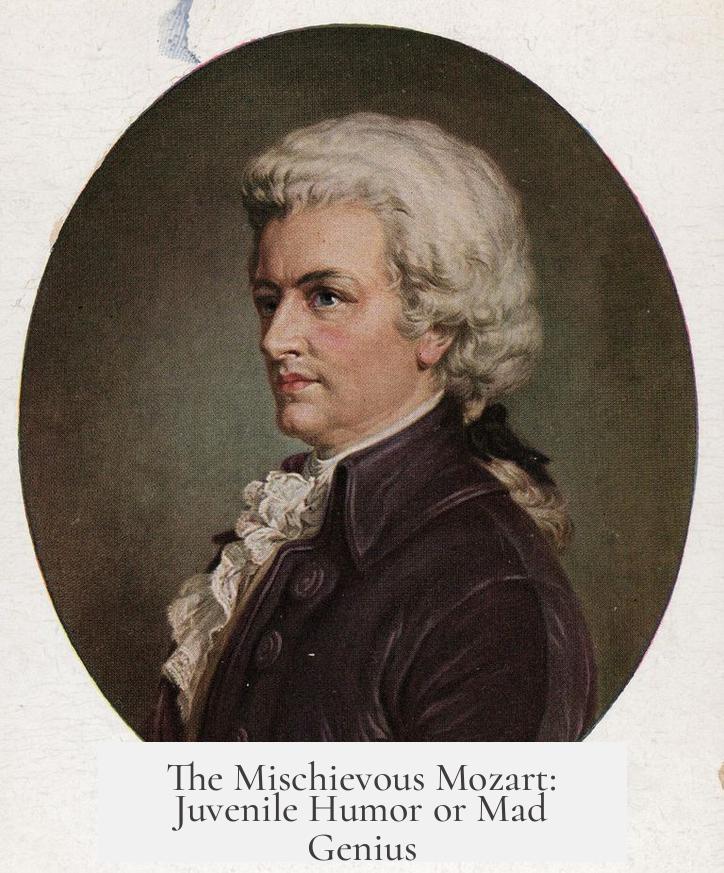
The movie shows Mozart as wild, quirky, sometimes even bordering on madness with his humor and antics. This portrayal finds some roots in reality. Mozart’s letters to his cousin Maria Anna reveal a juvenile sense of humor that sounds like the playground jokes you’d hear at a six-year-old’s birthday party. One such excerpt reads, “Oh my ass burns like fire! what on earth is the meaning of this!—maybe muck wants to come out?”
While the film pushes Mozart’s eccentricities to the extreme, it’s fair to say he enjoyed wordplay and crude jokes. However, the depiction of him as a near-madman exaggerates for theatrical effect. No historical record paints Mozart as a lunatic; he was a lively, fun-loving guy with a quick mind and sharp wit.
Genius Without the Factory Worker Illusion
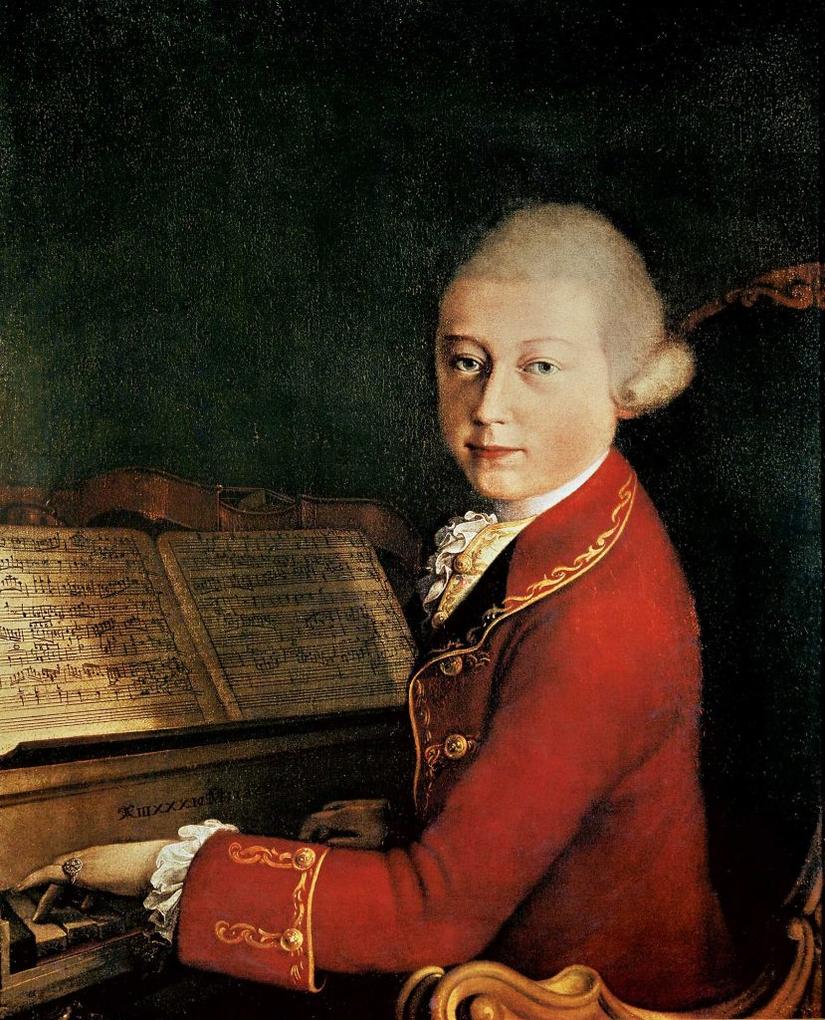
One point where Amadeus shines is in conveying the effortless genius Mozart had for composition. The movie shows him composing masterworks with speed and ease—accurate to a degree. Pieces like his Oboe Quartet were reportedly written out with few corrections, suggesting Mozart could compose entire intricate works mentally before writing them down.
For example, Mozart famously created his Symphony No. 36 in just four days—a feat he pulled off while on a stopover in Linz, rushed by a nobleman’s unexpected concert request. But let’s not buy the myth that he churned out music nonstop without struggle. He faced creative blocks and difficulties, like his noted frustration composing an opera in French. Mozart’s work was hard-earned, often overcoming challenges with spectacular outcomes.
The Complex Father-Son Dynamic
The movie briefly touches on Mozart’s youth, hinting at the complicated relationship with his father, Leopold Mozart. In real life, Leopold was a talented musician and composer who trained Wolfgang from a very young age. He was a strict, demanding taskmaster with high expectations. The young Wolfgang toured Europe relentlessly with his family, developing prodigious skills but perhaps at the cost of a normal childhood.
This father-son tension was real, though the movie glosses over much of it for the sake of narrative flow. In truth, their relationship swings between affection and conflict, shaping Mozart’s rebellious streak and independent spirit.
The Perpetual Child Archetype: Mozart as Eternal Youth
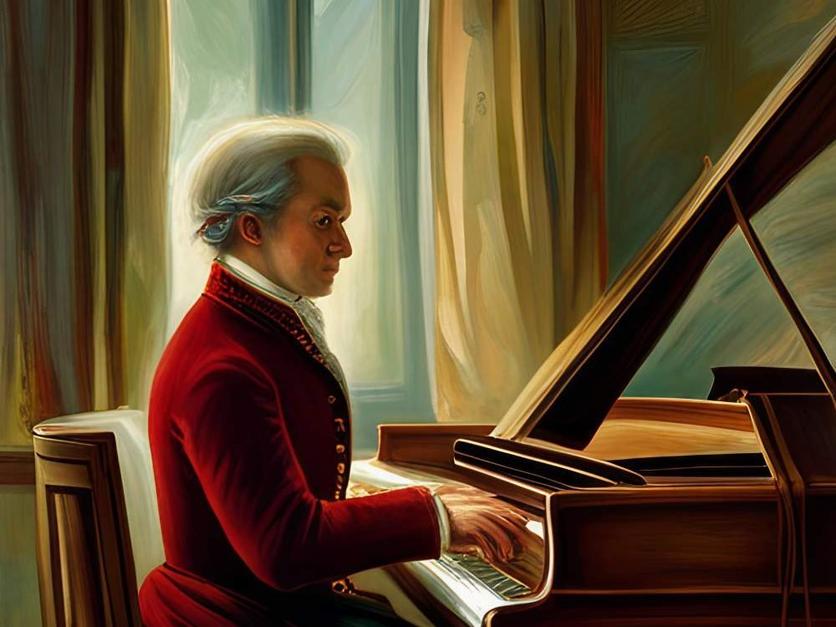
Amadeus leans heavily into portraying Mozart as a perpetual child, echoing figures like Michael Jackson who, deprived of normal childhoods by early fame, seemingly never matured fully. This archetype is compelling but simplistic.
While Mozart’s early years were marked by extraordinary musical demands that stole a normal upbringing, to say he never grew up underestimates his evolution as a musician and man. He matured, married Constanze, had children, and handled life’s responsibilities despite the creative chaos.
So, Should You Trust Amadeus as a Biography?
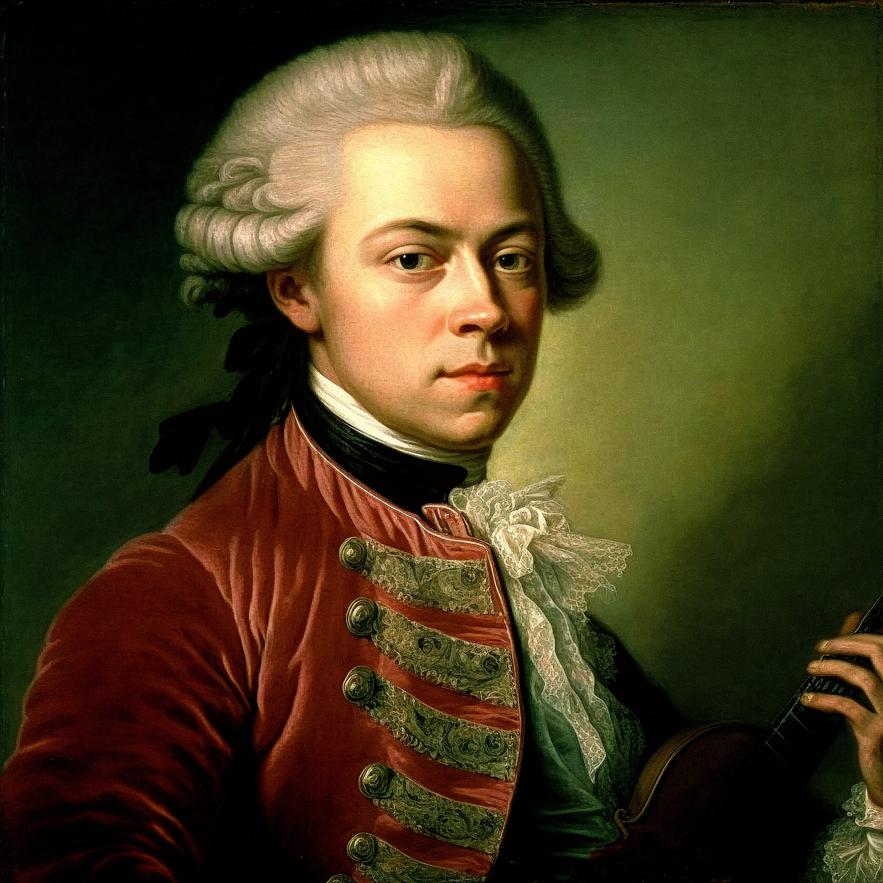
If you want a gripping tale full of ambition, jealousy, dark intrigue, and vivid characters, Amadeus nails it. But as a window into the historical Mozart? It’s more a funhouse mirror—reflecting some truths while distorting others for dramatic punch.
The film’s genius is painting Mozart’s story in bold strokes. It reveals a young man thrust into greatness, shaped by family, rivalry, humor, and genius. It simplifies and amplifies behavior for effect but preserves the essential spirit of the musical genius.
Lessons for the Curious Viewer
- Appreciate Mozart’s humor, but expect exaggeration. His childish jokes in real life were playful, not borderline madness.
- Remember that Mozart and Salieri’s rivalry is mostly fiction. They interacted professionally and showed mutual respect.
- Recognize Mozart’s genius came with effort and occasional frustration—not just effortless brilliance.
- Consider the film’s narrative choice to emphasize Mozart as a “perpetual child” as a storytelling tool, not strict biography.
In short, appreciate Amadeus as a dramatic interpretation, an artistic depiction filled with poetic license. It captures Mozart’s essence—the triumph, the tragedy, the spark of genius—without claiming biographical accuracy.
So next time you watch Mozart on screen, savor the spectacle but keep a historian’s eyebrow raised. How do you think historical figures should be portrayed in movies? Is capturing spirit more important than strict facts? That’s a debate as old as storytelling itself.
